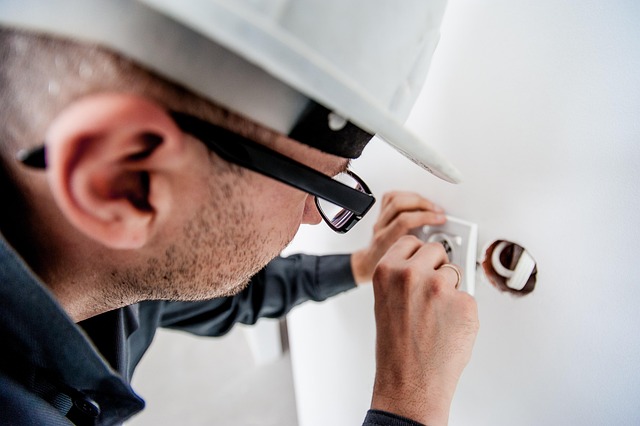Energy audits, led by qualified electricians, significantly enhance energy efficiency in homes and businesses. By scrutinizing HVAC, lighting, and insulation systems, they provide tailored advice like appliance upgrades, smart thermostat installation, LED lighting conversion, and HVAC optimization. These measures not only lower utility bills but also benefit the environment, making it a smart investment for property owners. Electricians' expertise is crucial in identifying inefficiencies and offering effective solutions.
Energy audits are a powerful tool for reducing energy consumption and costs. This article explores how electricians play a pivotal role in conducting comprehensive energy assessments and offering tailored solutions. From understanding complex energy patterns to implementing efficient systems, these professionals help both homes and businesses achieve significant energy savings. By delving into the benefits and processes involved, we highlight why seeking an electrician’s expertise for energy audits is a smart step towards a more sustainable future.
- Understanding Energy Audits: What They Entail and Benefits for Homes and Businesses
- The Role of an Electrician in Conducting Audits and Implementing Recommendations for Energy Efficiency
Understanding Energy Audits: What They Entail and Benefits for Homes and Businesses

Energy audits are a crucial process that helps homeowners and businesses identify areas where they can improve energy efficiency. Conducted by qualified electricians, these audits involve an extensive assessment of a structure’s energy use patterns and potential inefficiencies. By examining various systems such as heating, ventilation, air conditioning (HVAC), lighting, and insulation, an electrician can pinpoint specific improvements that will lead to reduced energy consumption and lower utility bills.
One of the primary benefits of energy audits is their ability to offer tailored recommendations for enhancing energy performance. For homes, this might include suggestions like replacing outdated appliances with energy-efficient models, installing smart thermostats, or adding insulation to attics and walls. Businesses can benefit from strategies such as upgrading lighting fixtures to LED, optimizing HVAC systems, or implementing energy management software. These improvements not only reduce environmental impact but also provide significant cost savings in the long run, making energy audits a wise investment for both residential and commercial properties.
The Role of an Electrician in Conducting Audits and Implementing Recommendations for Energy Efficiency

An electrician plays a pivotal role in conducting energy audits and recommending improvements for enhancing energy efficiency. They are equipped with the technical expertise to thoroughly assess a property’s electrical systems, identifying areas where energy is being wasted or used inefficiently. During an audit, these professionals inspect various components like wiring, lighting fixtures, appliances, and heating/cooling systems to pinpoint inefficiencies that contribute to higher energy consumption.
Once the assessment is complete, electricians provide actionable recommendations tailored to optimize energy usage. They may suggest upgrading outdated electrical panels, installing smart thermostats, replacing inefficient light bulbs with LED alternatives, or integrating renewable energy solutions like solar panels. By implementing these measures, homeowners can enjoy reduced utility bills and a smaller environmental footprint, while also enhancing the overall efficiency and safety of their living spaces.
Energy audits, driven by professional electricians, are powerful tools for enhancing energy efficiency in homes and businesses. By understanding what these audits entail and leveraging the expertise of qualified electricians, property owners can significantly reduce energy consumption, lower utility bills, and contribute to a more sustainable future. Electricians play a pivotal role in navigating these processes, offering tailored recommendations, and implementing improvements that transform spaces into more energy-efficient environments.
